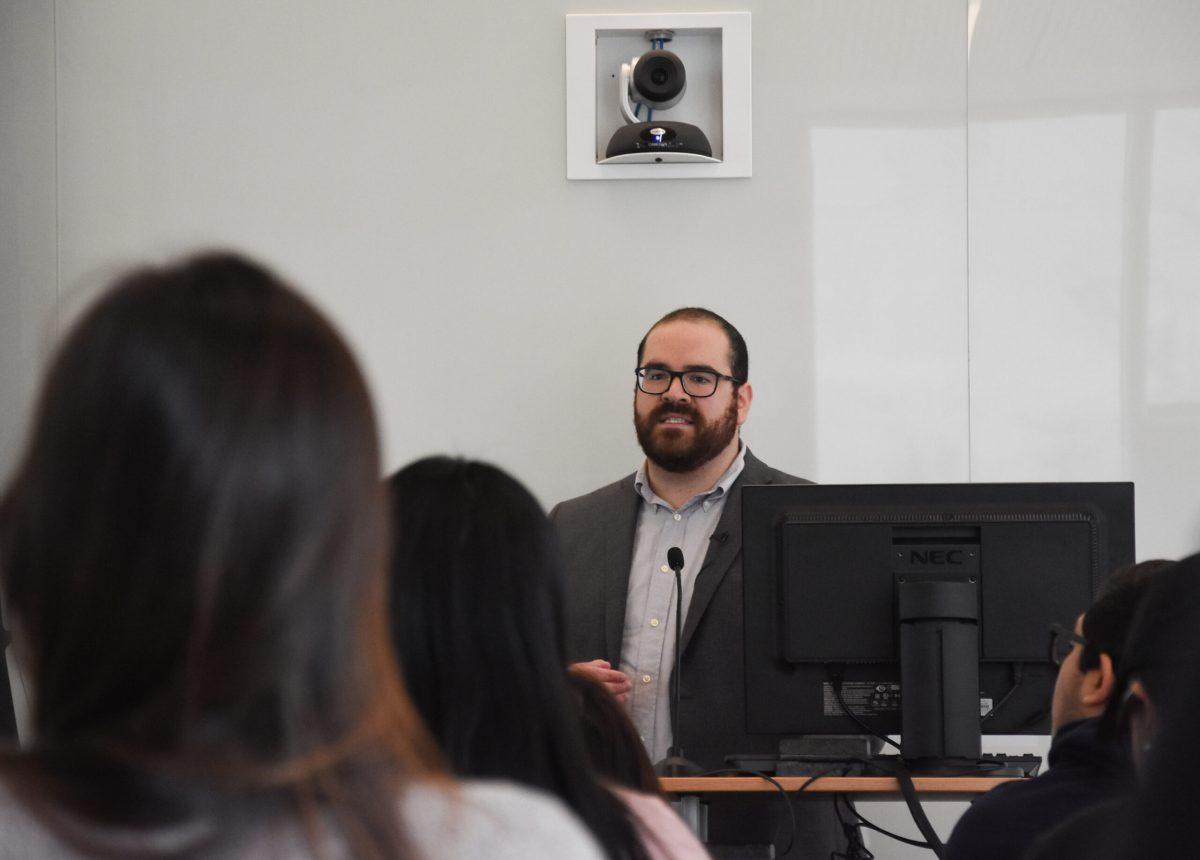The College of Humanities and Social Science (CHSS) Students Advisory Council and the Office of Social Justice Inclusion and Conflict Resolution (SJICR) invited Jason Hernandez to speak on campus this past Monday, Feb. 26. He provided information about the current state of Deferred Action for Childhood Arrivals (DACA) and about immigration history. During the event, he also discussed how students can offer support to immigrants.
Hernandez currently serves as the Director of the Rutgers Immigrant Community Assistance Project in Camden, N.J. He has traveled around the state giving presentations to different universities, community organizations and school districts to help people get more informed about immigration issues.
Hernandez started the event by sharing the history of immigration and a timeline about the background of immigration legislation. His timeline went all the way back to the post-revolutionary period when the first immigration acts were passed.
During the event, Hernandez also explained the different type of visas that immigrants can apply for, such as the “T visa,” which is reserved for victims of human trafficking.
The DACA program has been a controversial topic of discussion in the country after President Donald Trump decided to end the program, leaving thousands of young immigrants without a legal status.
Speaking about what may happen to DACA recipients if the program is revoked, Hernandez said the effects will be immediate and felt heavily by people who use the program. Due to the DACA annulment, recipients will lose their employment and their drivers license, which will lead them to not renew their car insurance, eventually selling their car.
Hernandez noted that at the moment, first-time DACA applications will not be accepted in the future. However, any recipients who had an expiration date that happens a year before Sept. 5, 2017, can file using the renewal application which is a simple version of the application.
“I feel like many people of our age feel that the government is working unfairly and slowly and ineffectively in protecting peoples rights,” said Marie DiLeonardo, Spanish and Subject Matter Education major.
At the end of his talk, Hernandez said there are several things immigrants can do to get more information about the situation. His key tip, however, is to find an expert in the field.
“My advice will be to get connected with advocacy organizations,” Hernandez said. “It is important that they go to ‘know your rights’ presentations. It is very important that every immigrant and undocumented immigrant family are aware of their right in the United States.”
For questions/comments about this story, email [email protected] or tweet @TheWhitOnline.























































































































































!["Working with [Dr. Lynch] is always a learning experience for me. She is a treasure,” said Thomas. - Staff Writer / Kacie Scibilia](https://thewhitonline.com/wp-content/uploads/2025/04/choir-1-1200x694.jpg)








































